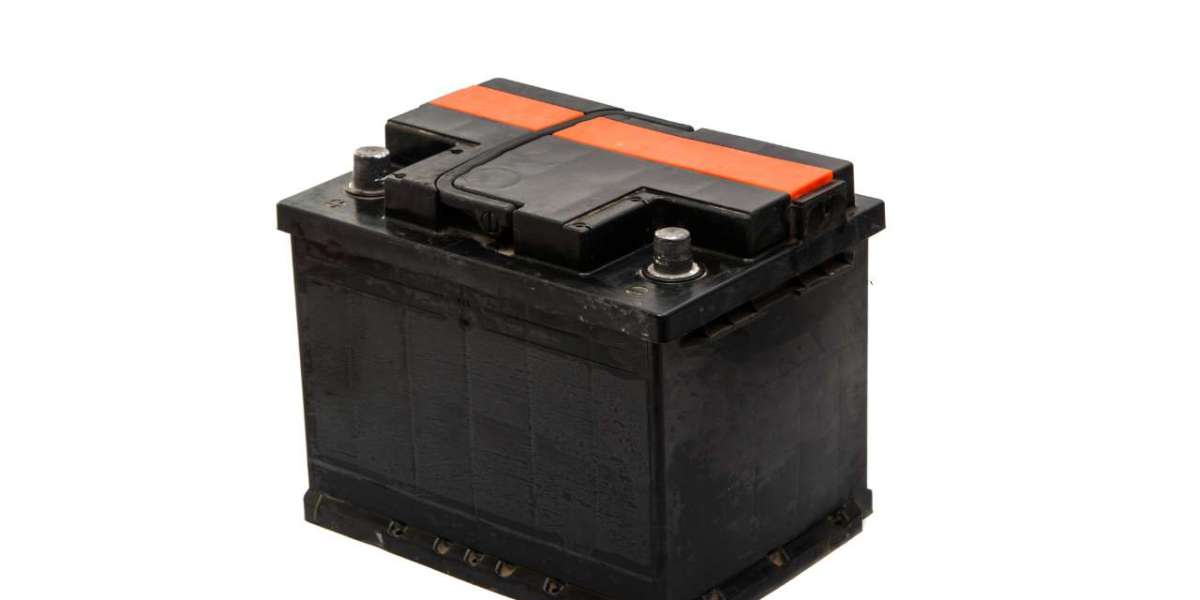A reliable car battery is the heart of your vehicle’s electrical system. It powers everything from the ignition to the lights, infotainment, and climate control. But when the battery begins to fail, your car’s performance—and your peace of mind—can quickly deteriorate. Choosing the best car battery isn’t just about buying a product that fits your car; it’s about understanding your driving habits, local climate, and vehicle requirements.
In this comprehensive guide, you’ll learn how to select the ideal car battery for your vehicle, understand car battery prices, and identify the key factors that influence your purchase decision.
Understanding the Role of a Car Battery
A car battery stores the electrical energy required to start the engine and powers various vehicle systems when the engine is off. It also helps stabilize voltage to keep your engine running smoothly. In modern vehicles equipped with advanced electronics and hybrid systems, choosing the best car battery is even more critical to ensure long-term reliability.
When a battery loses efficiency, you might notice symptoms like dim headlights, slow cranking, or dashboard warning lights. Recognizing these early signs helps you replace your battery before it completely fails.
Types of Car Batteries
Lead-Acid Batteries
Traditional lead-acid batteries are the most common and affordable type used in most cars. They are designed for vehicles with standard electrical needs. However, they require regular maintenance and may not last as long in extreme weather conditions.
Absorbent Glass Mat (AGM) Batteries
AGM batteries offer superior performance, faster charging, and higher resistance to vibration. They are ideal for vehicles equipped with advanced technology like start-stop systems or heavy electrical accessories.
Gel Cell Batteries
These are sealed batteries that use a gel electrolyte. They are maintenance-free and suitable for off-road or performance vehicles that experience constant movement or vibration.
Lithium-Ion Batteries
Commonly used in electric and hybrid vehicles, lithium-ion batteries are lightweight and offer longer lifespans. However, they are typically more expensive than conventional batteries.
How to Identify the Best Car Battery for Your Vehicle
Check Your Vehicle’s Specifications
Every car manufacturer provides specific battery recommendations based on engine size, power needs, and design. Always refer to your owner’s manual to confirm the required battery group size, voltage, and terminal position.
Consider Your Driving Conditions
If you often drive in hot climates, a battery with high heat resistance is essential. In colder regions, choose one with strong cold-cranking amps (CCA) to ensure reliable startups during freezing temperatures.
Look at Reserve Capacity (RC)
Reserve capacity refers to how long a fully charged battery can power your car without the engine running. A higher RC indicates a longer-lasting battery—ideal for vehicles with multiple electronic systems.
Focus on Maintenance and Durability
The best car batteries are often maintenance-free, meaning they are sealed and don’t require regular electrolyte top-ups. If you prefer a hands-free experience, look for a sealed AGM or gel battery.
Evaluate Warranty Coverage
A solid warranty is a sign of confidence from the manufacturer. Always check the warranty duration and terms before purchasing. It provides peace of mind and protection against early failures.
Understanding Car Battery Prices
Car battery prices vary depending on several factors, including the brand, type, and capacity. While lead-acid batteries tend to be the most affordable, AGM and lithium-ion options are priced higher due to their technology and performance benefits.
Other elements affecting the price include:
Battery Capacity (Ah): Higher capacity batteries generally cost more.
Brand Reputation: Premium brands may charge more but often provide better reliability and lifespan.
Technology Features: Advanced models with smart charging or enhanced vibration resistance command higher prices.
Warranty Period: Longer warranties typically mean higher upfront costs.
If you’re looking for reliable batteries from trusted brands, you can explore a variety of options and specifications at AutoTaLab Car Battery.
Expert Tips for Selecting the Right Car Battery
Prioritize Compatibility
Never choose a battery based solely on price or brand name. Ensure it matches your vehicle’s specifications for size, voltage, and terminal layout. A mismatch can cause electrical issues or installation challenges.
Check Manufacturing Date
Always choose a recently manufactured battery. Over time, unused batteries can lose charge and efficiency. Check the manufacturing code printed on the case to ensure it’s within six months old.
Pay Attention to Cold-Cranking Amps (CCA)
CCA measures a battery’s ability to start your car in cold temperatures. A higher CCA rating ensures better cold-weather performance, especially in regions with harsh winters.
Look for Corrosion Resistance
Batteries with corrosion-resistant terminals and sealed designs provide better longevity. Corrosion can reduce electrical conductivity and lead to premature failure.
Seek Professional Installation
Even the best car battery can underperform if not installed correctly. Professional technicians can ensure proper fitting, secure connections, and correct disposal of your old battery.
Common Mistakes to Avoid When Buying a Car Battery
Ignoring your driving habits – short trips may prevent your battery from fully charging, reducing its lifespan.
Overlooking electrical load – modern vehicles have numerous accessories, so choose a battery that can handle the extra load.
Focusing only on price – cheaper batteries often have shorter lifespans and limited warranties.
Skipping voltage tests – regularly testing your battery’s voltage helps prevent sudden breakdowns.
Not recycling old batteries – old car batteries contain hazardous materials; always dispose of them responsibly.
Maintenance Tips for Extending Battery Life
Regular Inspection
Check your battery terminals for corrosion or loose connections. Clean them using a baking soda and water solution if necessary.
Keep It Fully Charged
Avoid leaving your car unused for extended periods. If necessary, use a trickle charger to maintain battery health.
Protect from Extreme Temperatures
Whenever possible, park your car in shaded or covered areas to reduce exposure to heat. Extreme temperatures can significantly reduce battery performance.
Drive Regularly
Frequent driving keeps your battery charged and prevents sulfation, a common cause of premature battery failure.
How Climate Influences Battery Performance
Hot Weather
High temperatures accelerate the evaporation of electrolytes inside the battery, leading to reduced efficiency. Choosing a battery designed for heat resistance can help combat this issue.
Cold Weather
Low temperatures slow down chemical reactions, reducing the battery’s ability to provide sufficient power. In colder climates, look for a battery with higher CCA ratings.
Humid Conditions
Humidity can cause corrosion on terminals and connectors. Sealed and maintenance-free batteries are best suited for such environments.
Environmental Impact of Car Batteries
Car batteries contain lead and acid, both of which are hazardous to the environment. However, modern recycling systems ensure up to 99% of a lead-acid battery can be reused. When replacing your old battery, always ensure it’s handed over to an authorized recycler. This simple step helps protect the environment and conserves valuable resources.
How to Know When It’s Time for Replacement
The engine takes longer to start.
Headlights appear dim even after charging.
Dashboard battery light stays illuminated.
You hear clicking sounds when turning the key.
The battery is older than three years.
If any of these symptoms appear, have your battery tested immediately to avoid unexpected breakdowns.
Best Practices for Long-Term Reliability
Keep battery terminals clean and tight.
Test the battery regularly during routine maintenance.
Avoid using high-powered accessories when the engine is off.
Choose high-quality batteries from trusted suppliers for dependable performance.
Future Trends in Car Battery Technology
The automotive industry is rapidly moving toward enhanced battery technology. Manufacturers are investing in smart batteries with real-time diagnostics and longer life cycles. Eco-friendly alternatives using recyclable materials and higher energy densities are also emerging.
As electric vehicles become more common, advancements in lithium-ion and solid-state batteries will redefine the market for car battery prices and performance expectations.
Conclusion
Choosing the best car battery for your vehicle requires a balance between compatibility, performance, and longevity. By understanding your car’s needs, the types of batteries available, and the factors influencing car battery prices, you can make an informed decision that ensures reliable performance every time you start your engine.
Your battery is more than just a power source—it’s the foundation of your vehicle’s reliability. Make the right choice today to drive with confidence and peace of mind.














